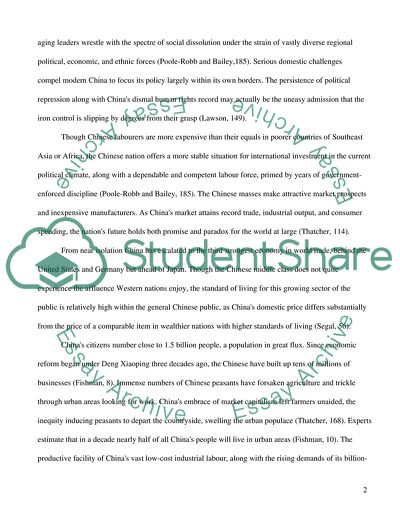Cite this document
(Is There a China Threat, and If So What Should We Be Doing About It Literature review Example | Topics and Well Written Essays - 1750 words, n.d.)
Is There a China Threat, and If So What Should We Be Doing About It Literature review Example | Topics and Well Written Essays - 1750 words. https://studentshare.org/sociology/1703875-is-there-a-china-threat-and-if-so-what-should-we-be-doing-about-it
Is There a China Threat, and If So What Should We Be Doing About It Literature review Example | Topics and Well Written Essays - 1750 words. https://studentshare.org/sociology/1703875-is-there-a-china-threat-and-if-so-what-should-we-be-doing-about-it
(Is There a China Threat, and If So What Should We Be Doing About It Literature Review Example | Topics and Well Written Essays - 1750 Words)
Is There a China Threat, and If So What Should We Be Doing About It Literature Review Example | Topics and Well Written Essays - 1750 Words. https://studentshare.org/sociology/1703875-is-there-a-china-threat-and-if-so-what-should-we-be-doing-about-it.
Is There a China Threat, and If So What Should We Be Doing About It Literature Review Example | Topics and Well Written Essays - 1750 Words. https://studentshare.org/sociology/1703875-is-there-a-china-threat-and-if-so-what-should-we-be-doing-about-it.
“Is There a China Threat, and If So What Should We Be Doing About It Literature Review Example | Topics and Well Written Essays - 1750 Words”. https://studentshare.org/sociology/1703875-is-there-a-china-threat-and-if-so-what-should-we-be-doing-about-it.


